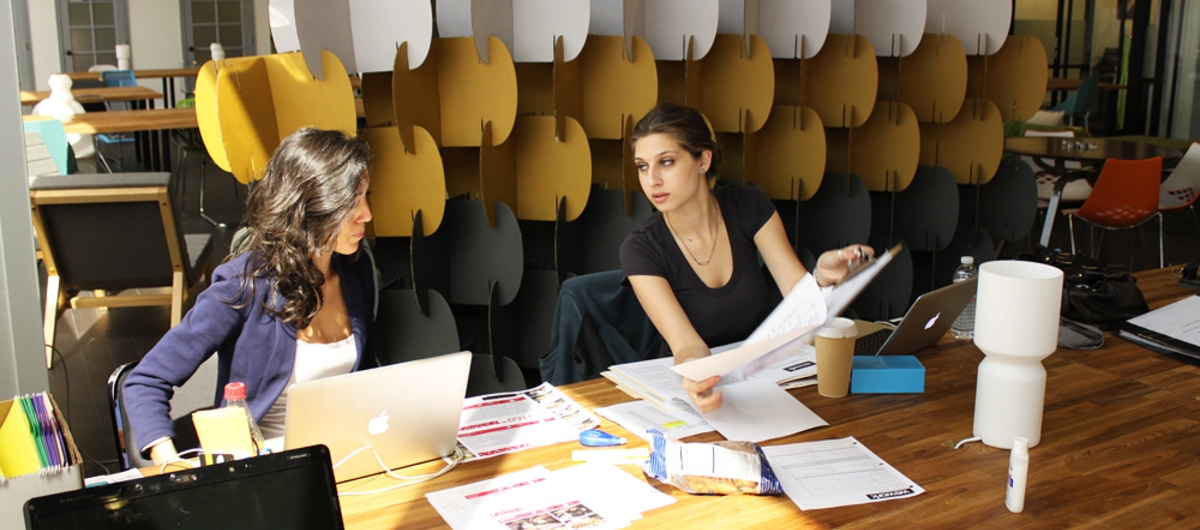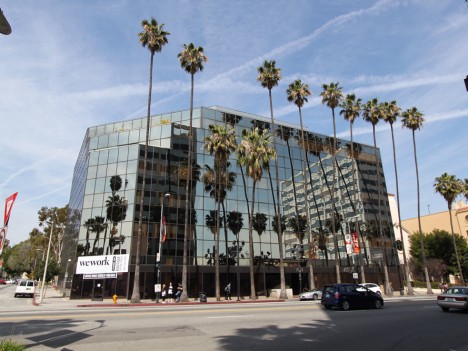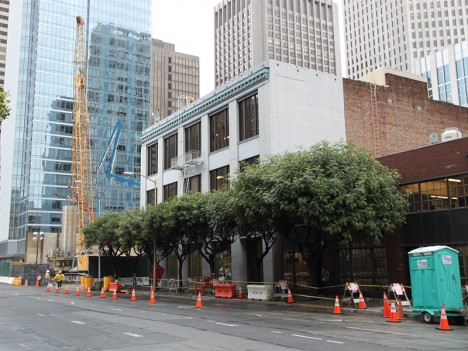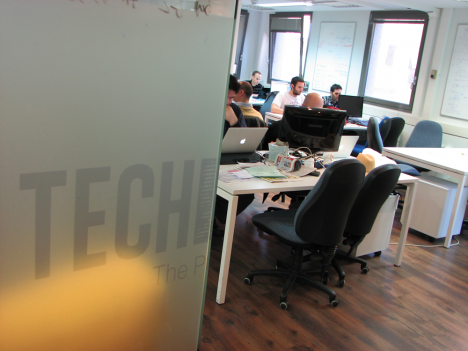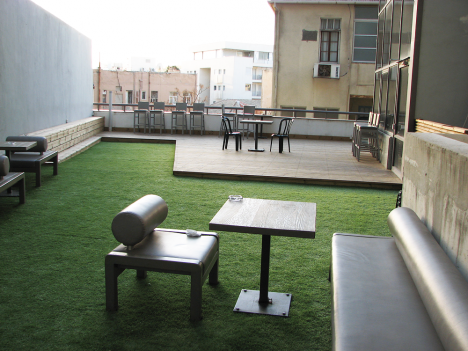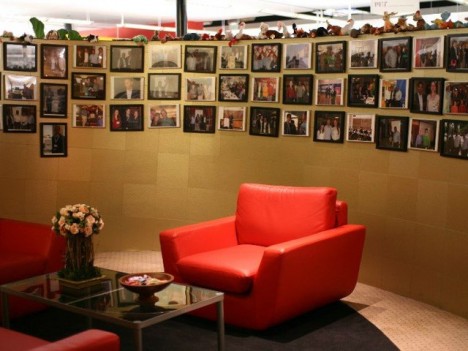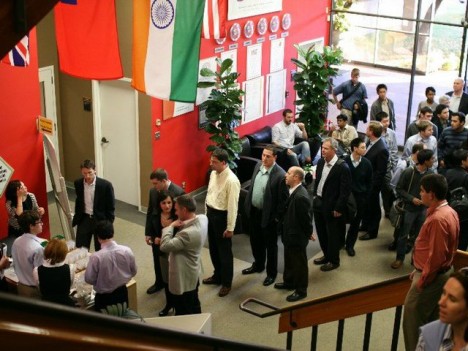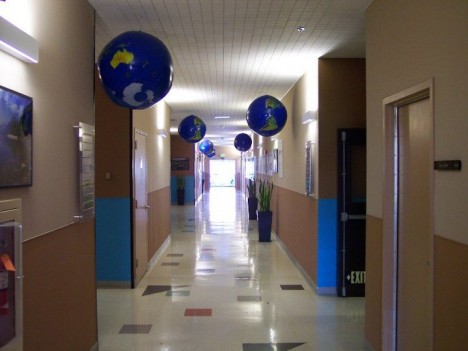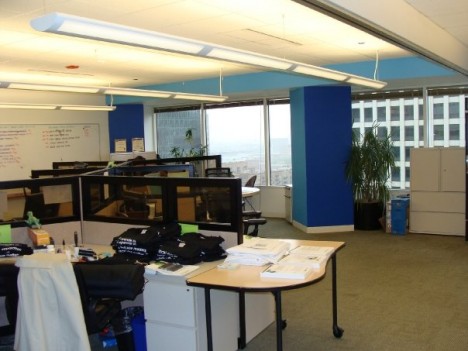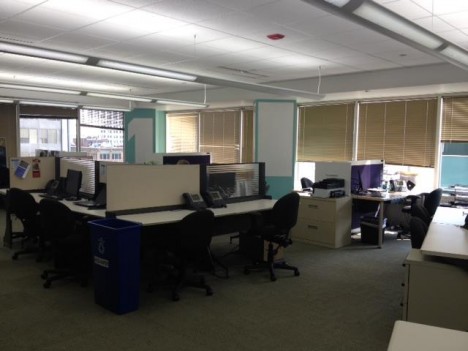Incubators are the boarding schools of the business world, accepting young, rough-around-the-edges startups, teaching them, mentoring them and making them market-ready, before shipping them off into the real world and inviting another round of startups to continue the cycle. As the sharing economy gains traction and the number of startups and freelancers increases, however, a second iteration of the incubator is becoming increasingly popular.
Coworking incubators have taken the classic incubator model and added coworking elements. Part of this, naturally, includes adding an area dedicated to coworking, but also means applying some of the values that are typically associated with a coworking space. Namely, openness and a focus on long-term community building.
They are different from traditional incubators in two important ways. First, they embrace a degree of openness. They are not exclusive to startups, but are also open to freelancers and independent workers, who usually work in a dedicated coworking area.
The second difference between typical incubators and coworking incubators are the terms on which companies and freelancers are members. Unlike a classic incubator, there is no expiration date on a startups’ time in a space. Their membership is open-ended, allowing for a heavier focus on community building. However, companies and individuals alike are still required to apply for membership, and are only accepted if their ethos fits in with the greater community.
But except the elements of curation and office aesthetics with private offices (which can too be found in some coworking spaces) it seems that these coworking incubators could otherwise be called ‘coworking spaces for startups’. They often apply the same directives to their members as what coworking spaces do.
But how do these coworking elements impact community, openness, serendipity and the feel of a workspace? Here we compare a number of these hybrid facilities which have popped up in their dozens over the past year, and find out which workers are suitable for which space:
:
RocketSpace started in February 2011 in San Francisco and hosts dozens of companies today. It is a fairly popular incubator amongst startups, and also refers to itself as 'coworking space' in blogposts. When we visited RocketSpace in March, however, we were informed that visits aren’t permitted, so apart from the reception, we can only assume a 'coworking space' exists. From the outside it looks like a pleasant place with an open work space.
They host start-ups such as Spotify, the streaming service which has left many of its users disgruntled by posting the songs they’re listening to on Facebook without their knowledge. However, the all-sharing-whether-you-like-it-or-not principle is not upheld by the Rocket Space though, being off-limits to outsiders.
On one hand, disallowing constant visits is acceptable, since their residents have a right to work undisturbed. RocketSpace also cooperates with numerous corporations, which typically require more privacy.
On the other hand, the policy is so restrictive that the differences between this ‘coworking’ incubator and the big corporations they work with are difficult to identify, stifling serendipitous occurrences which coworking spaces and incubators alike hold in such high esteem.
RocketSpace focus on Start-ups that have already secured seed funding. They don't host real ‘new’ startups. Since they only accept business that have convinced others to fund them, there is significantly less risk involved for RocketSpace, but less opportunity to create new ideas, and extended development within the space
The workspace feels a bit like Windows 8: it looks new, fresh and open; but in a split second you can revert back to its old interface. They do at least offer some open events, most of which require a (low) admission fee.
:
Plug and Play Tech Center is an incubator group comprising of three spaces in the California Bay Area which, as Jena Wuu from the international department explained, is ‘like coworking for startups.’ The Plug and Play HQ in Sunnyvale is the biggest of the three, and the space where the scope of community is the most broad. Startups on average remain there around 1.5 to two years, and the majority - around 60% - do not go through the incubation program. Instead they simply rent workspace - like a freelancer would in a coworking space - and take advantage of being a part of a well networked community.
Wuu feels that it really is the community that defined the space. ‘We do a lot to promote community amongst our startups,’ she said. ‘Every month we have a community meeting where everyone comes and we have free beer and pizza, introduce the new residents, highlight successes if somebody’s raised funding. In addition, we also have a weekly pitch session with the mentors, followed by a free lunch.’ Theses pitches are open not only to the entire resident membership, but also the outside community.
She knows the ins and outs of what each company is doing and puts startups, or members of startups, in contact with one another. Collaboration and networking is not only confined to the building though, or even between the other Plug and Play facilities in the U.S. Extensive effort is invested into building partnerships with organisations, companies and government bodies in all corners of the globe, allowing resident companies to establish their own cross-border networks.
The space often hosts foreign companies, too, with the international department working constantly to integrate them into the community. Jena Wuu, who works in the in the department, says it’s important for business development, and is just one of the ways they help their members grow: ‘A lot of the time it’s easy to get caught up in your own geographic bubble. It’s really important to remain aware of other markets, and build relationships with different people from different cultures. We encourage people to talk to one another, because that’s how one can find the connections or the people who will be able to help you,’
Freelancers are rare in this workspace, but the space is a Celebrations box of startups from all industries, and encourages visits from both international and local entrepreneurs to work and for events, workshops, and mentor meetings.
The open spirit isn’t so much reflected in the workspace design though, which is done in cubicle style. But there are advantages to this, too, since entrepreneurs and employees prefer more privacy in a workspace. ‘Plug and Play basically has a cubicle style,’ explained Jena, ‘but the good thing about cubicles is that it allows for flexible office space so we can actually grow with companies. Most of the companies that we have here have 10 or fewer employees, but we don’t actually kick anybody out at any stage. The largest company here has about 70 people working for them.’
:
Tel Aviv is called one of the hottest startup cities of the world. The city doesn't offer only a hot climate, there is also a rapidly growing tech scene in Israel's most vibrant metropolitan area. Facebook just acquired one of their babies, Face.com, these days.
TechLoft opened its doors last September in this environment. The center of the main open workspace is an informal meeting room, dubbed ‘Aquarium’. TechLoft looks strikingly like a coworking space, with resident startups and freelancers working alongside one another on large, communal desks. Members also can scoop up their belongings and migrate to the spacious roof terrace or one of the balconies. The terrace also offers a big green space for outdoor events at night.
The setting seems to be working well for them, having doubled in size after only four months in operation. A core concept of TechLoft is to centralize many of services which startups need - from legal advice to banking services - in one convenient location. Members needn’t traipse through the metro-deprived city, as all of the services come to them. They host events, such as TechTuesdays, which are open to everyone.
TechLoft focuses on tech startups, but freelancers who have just started a business are also welcome. The memberships are open-ended, so residents are free to nest as long as they wish. A incubator-owned funding body is in the planning stage.
:
i/o LA, standing for input/output, is a relatively new incubator in Hollywood, which started in April. They collaborate with WeWork, a company which provides light flooded private workspaces for small companies, start ups and freelancers. i/o LA, in addition, offers a sexy open-hall workspace in an 80's glass mid-rise. They combine a incubator program with coworking elements.
The incubation program focuses on small companies in the tech, media & entertainment industries, and their coworking space attracts freelancers in the same field. Working in the café is open for all, and is paid for in coffee or snacks.
:
TechNexus was recently voted as one of the top ten incubators in the US; an impressive accomplishment, especially considering they do not consider themselves an incubator per se. Instead they prefer ‘collaboration center’, and refer to the facility as a giant ‘clubhouse’. This is because, unlike incubators, resident companies are not fixed into a time-restricted contract, and freelancers and big companies also come through and use the space.
This openness to all forms of business allows TechNexus acts as the bridge between small companies and huge enterprises, representatives of which often work in the space and host events.
Big companies don’t feel too out-of-place in the space, either, since TechNexus has an office aesthetic, with a number of private offices of different sizes and a cubicled-off area for those who don’t need a door.
Like a clubhouse (and an incubator), not everyone is extended membership privilege, so the openness the space prides itself on is only open to a certain extent. Companies and freelancers are admitted according to their projects and expertise. In addition, the freelancers who are accepted into the club are considered themselves small businesses, and are expected to want to grow.
Upon being asked whether this curation distorts the potential for true serendipitous meetings and natural and organic collaboration (true serendipity is, after all, random and unexpected by definition) Terry Howerton, co-founder, insisted that serendipity should actually be made to happen.
‘In fact what we’re doing is all about planned serendipity. It’s about making sure there is value in each community member, so we recruit the right mix of people,’ said Howerton, who gave the example of readily admitting a developer or coder, since there was a good chance for them to work with the many software, IT and internet businesses who have a desperate need for those skills.
Furthermore, if a company is no longer bringing value to the space, or if the space organizers feel that TechNexus is no longer benefiting the company, they can be asked to leave.
This system seems to work well for the 7-floor space, whose resident startups turned over a cumulative $180 million US in capital since the ‘incubator’ opened.
:: Upshot ::
Evident across all these spaces are elements of curation and closed design, but they are not followed as strictly as they are in ‘traditional’ incubators. Instead, they have succeeded in achieving a balance.
For one, unlike an incubator, companies are not necessarily required to hand over a percentage of their shareholdings, meaning no risk for the incubator, and less pressure to find a startups that is the next Facebook.
Second, by allowing startups to stay with no time restrictions, a community with strong connections, relationships and networks can be fostered. From a business perspective in particular, having a range of businesses in all levels of growth phases creates a real opportunity for demonstrative mentorship.
Some of the hybrid incubators still offer startup programs with a fixed duration, and events feature heavily in all of their calendars, for those startups looking for business guidance.
For freelancers, there is significant disparity between the admittance policies between the spaces listed, but overall they tend to be accepted more readily if they are in the field that the incubator focuses on. This arguably does have an impact on the community, since it takes all proverbial types. Freelancers who have no intention of becoming future CEO’s and growing into small companies are therefore still best suited to coworking spaces.
Also, the coworking incubator layout tends to be more closed off and office-like, which is not ideal for independent work. For employees and entrepreneurs, on the other hand, who prefer a mix of open and closed workspace, coworking incubators are ticking all the boxes.
Moreover, the are generally large spaces, and are not restricted by limited space and, as a result, monthly turnover. A sudden exodus of a company of six employees would leave a significant gap in the monthly budget of a coworking space with 40 desks, and may prove difficult to fill in a short time.
These types of spaces ultimately cater to the startup - not the independent worker; a fact which explains why they will never be completely open in terms of admittance and design. But they have adopted some of the values of coworking, are are less rigid than most ‘traditional’ incubators. By being open to an extent, many of the spaces have allowed a strong community to develop. For a startup looking for a coworking space, or a freelancer looking to expand their business, they may prove as the happy in between, and fill a niche in the market.
Finally, because they do cater so well to the entrepreneurial demographic, they will not overtake facilities like coworking spaces, which serve the world’s hundreds of millions of freelancers. And Terry Howerton therefore missed the point somewhat when he said recently that ‘most coworking facilities suck,’ because they have ‘too many freelancers and not enough growth.’
:::
Browse incubators and coworking spaces on Deskwanted.



